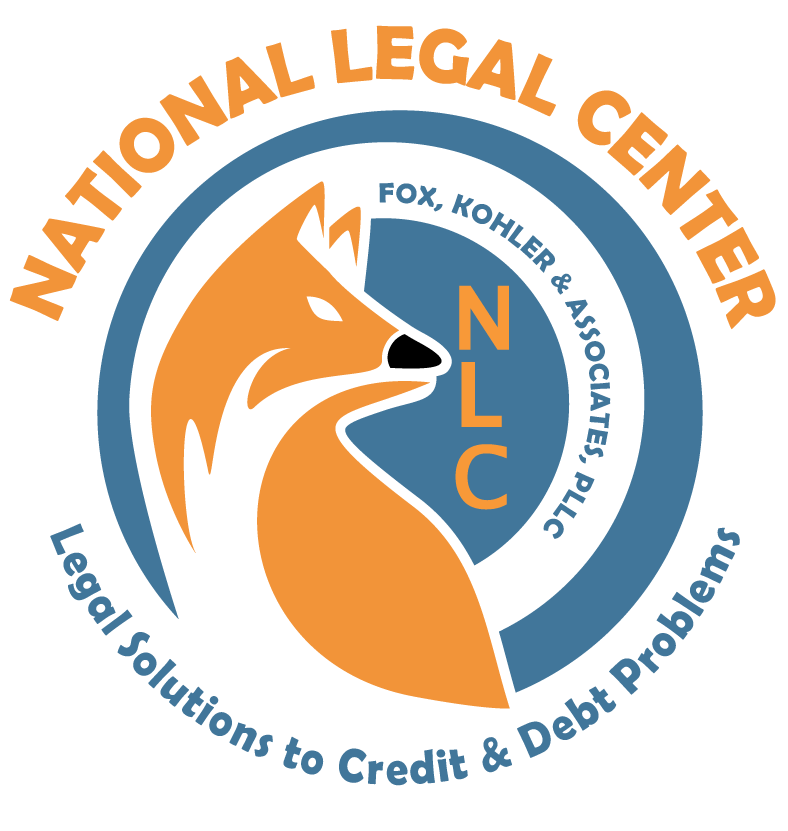Debt collectors have a reputation for being intimidating, uncaring, and unethical. While that may be the case for some, this is a great example where the extreme minority cast a shadow over the majority. In many ways, debt collectors and the debt collection agencies that employ them have earned their reputation. Still, most individuals in the Account Receivables Management (ARM) industry are genuinely good people.
If you are in a situation where you need to deal with a debt collector, our team of expert professional negotiators is here to share their wisdom and help you.
Debt settlement companies will often infer that a consumer cannot negotiate with debt collectors directly. This is not true! DIY debt settlement is possible, though we do recommend working with a reputable state-licensed debt settlement attorney near you to ensure that the debt settlement agreement is honored.
Would you rather not negotiate with debt collectors directly? We’ve got you.
National Legal Center has helped thousands of people #StandUpToDebt, and we’re at the ready for you, too.

When to Use These Tips for Settling with a Debt Collector
Note that the following suggestions should work for just about any type of debt you are attempting to settle. While we’ll get into some technicalities, these strategies are more ‘soft’ negotiation skills. They can be utilized for unsecured debt, like credit cards and medical debt, and with any type of collector, whether it be an original creditor, collection agencies, or debt collection law firms.
Kindness Gets You Farther than Being Rude
Lisa Fuerstenberg, a 13-year debt negotiation veteran, suggests kindness. “I remind myself that they have a job to do also, and that kindness gets you farther than being rude.”
This spectacular suggestion goes far beyond just dealing with debt collectors. We can apply this throughout life!
It’s true: a debt collector is more likely to work with you if they feel that you are reasonable and cooperative. This isn’t to say you need to become their best friend (but hey, why not?) and share a ton of information with them, but civility and kindness go a long way.
A debt collector’s job is to collect on the debt. That’s how they put food on the table and keep a roof over their head. Yes, sometimes some collectors will resort to bullying tactics and other unfair methods to collect. If you believe a collector is violating your rights, our consumer rights attorneys can help turn the tables and take action against them. However, the past 15 years have brought about a significant shift, and debt collection agencies seem to be attempting to clean up their act.
Collection agencies have also realized that kindness is more effective in collecting debt. You’ll probably be treated with respect more often than not, especially if you show respect to them.
Walk Away from the Phone
If you’re feeling overwhelmed or panicked, sometimes the best thing you can do is take a break by stepping away from the phone. Don’t worry. You’re not abandoning the negotiation —you’re just taking a break.
“I’m sorry, I need to put you on hold for a moment,” is a perfectly polite and acceptable way to pause a conversation to allow yourself a moment to gain your composure. The pause gives you some time to clear your head, take a few deep breaths, and recall your negotiation goals.
You’re not obligated to stay on the phone with the debt collector if you feel uncomfortable or pressured. This is YOUR negotiation, and you should never feel like you need to do something you’re not comfortable doing.
Treating Debt Collectors Respectfully and Calmly Can Sometimes Work Wonders
Kelsey Holmes, a legal assistant in the debt resolution division of National Legal Center, encourages respect. She shares that “Treating them respectfully and calmly can sometimes work wonders. They’re used to being yelled at, so it’s a relief for them to talk to someone that treats them ‘well’. ”
Kelsey is especially referring to call-center situations that consumers might encounter when calling a phone number found on a debt collection letter. Collectors working for larger collection agencies that deal with a significant volume of inbound and outbound calls will often spend the day being hung up on, cursed at, and belittled. However, when you’re polite and understanding, it can ‘work wonders’ and be a breath of fresh air for a collector. It makes sense that a debt collector who has a reprieve from being beaten down all day might be more willing to go to bat for someone who treats them with respect for a change.
You Share a Common Goal with the Debt Collector
It might not feel like it at times, but you and the debt collector both want the same thing: to resolve the debt. Of course, you want to resolve it for as little as possible, and they want to collect as much as possible. Aside from that, though, you’re ultimately trying to achieve the same big picture goal.
Remembering this can help ease some tension and make the conversation feel more cooperative. Adversarial negotiations aren’t just less comfortable, they’re less successful. A successful negotiation happens when both parties walk away satisfied with the deal. You’re both working towards the same goal, so there’s no need for hostility or hatred.
Bonus Tip: Ignore your credit report.
This can be a real challenge, but skip the part of the call where you ask them to remove the item from your credit report. Contrary to popular internet theory, a debt collector will very rarely have any control over what is or is not reported on your credit report. The company will either systematically update your report or choose to no longer report the account. They cannot misrepresent the debt and, if they continue reporting on your credit report, they are required to update the account to show it has been paid through a settlement agreement and has a $0 balance. Time is money, so a collector will probably appreciate you skipping this part of the conversation.

Know Your Debt Settlement Numbers before You Negotiate
This negotiation is all about numbers: the amount of debt, the monthly payment, the numbers behind your hardship, etc. So before you even pick up the phone to start negotiating with a debt collector, make sure you know your numbers inside and out. This way, you can confidently discuss payment options without having to stop and do math in your head, making you seem unprepared, an easy target, or divulge information they can use against you.
Some helpful numbers to know before you start negotiating include:
- The total amount of debt
- The monthly payment you can afford
- Any lump sum you can put toward settling the debt
- Your hardship (unemployment, underemployment, medical bills, etc.)
- Your monthly income
- Other debts you owe, including debts like back taxes and child support
- A detailed breakdown of your monthly expenses
- How much you would like to settle for
- How much you can afford to settle the debt for (monthly or in a lump sum)
- Your state’s statute of limitations on debt collection
If ever there were a time to spend an extra few moments in preparation, this is it! Take the time to write this information down. An additional 30 minutes to gather information can make a tremendous difference in your negotiations, translating to actual financial savings. You can enter into negotiations with confidence and a clear goal in mind by being prepared with these numbers.
Want to know the secret no debt settlement company would want you to know? You can usually get bona fide legal representation for the same cost charged by debt settlement companies. Get a free consultation today!
Know Your Rights under the FDCPA, FCBA, and FCRA
While we suggest respect, kindness, and negotiating with debt collectors as allies instead of enemies, we also want you to keep your guard up. Remember, the industry earned its reputation. There are numerous consumer protection laws enacted by the Federal Trade Commission and other government entities that aim to protect you from unfair activity by any collection agency you might deal with.
Fair Debt Collection Practices Act (FDCPA)
The Fair Debt Collection Practices Act (FDCPA) is a federal law that prohibits third-party debt collectors from using abusive, unfair, or deceptive practices when they collect debts. This law only applies to third-party debt collectors. First-party creditors, like your credit card company or original lender, do not fall under the FDCPA, though individual states may have laws that do include first-party creditors.
Some actions prohibited under the FDCPA include:
- Making threatening statements
- Misrepresenting the debt
- Using profanity
- Lying about how the debt will affect the consumer’s credit history
- Applying debt payments to the wrong account
This comprehensive law was recently updated to include language that discusses when and how a collection agency and its representatives can contact consumers through social media.
Fair Credit Billing Act (FCBA)
The Fair Credit Billing Act (FCBA) is a federal law that protects consumers from unfair billing practices and gives them the right to dispute errors on their credit card bills. This provides consumers with a way to dispute fraudulent or unfair transactions on their statements directly with their credit card issuers.
While in dispute, the consumer is only required to make a partial payment on their card. They are only required to pay on what is known and agreed to be legitimate debt. Then, the consumer will either see the disputed amount waived or they will be responsible for resuming timely payments on the debt if the investigation determines that the disputed transactions are legitimate.
The credit card issuer will be required to cease collection activity while they investigate, respond within a specific time, and may need to make certain written remarks on the consumer’s credit reports.
Fair Credit Reporting Act (FCRA)
The Fair Credit Reporting Act (FCRA) is a federal law that regulates credit reporting agencies and how they report information about consumers’ credit histories. The FCRA gives consumers the right to know what information is being reported about them, dispute inaccurate information, and have inaccurate or unverifiable information deleted from their credit reports.
When you know your rights, you can be more assertive and confident when speaking with a debt collector. If they are threatening or using any tactics you feel violate your rights under the FDCPA, FCBA, or FCRA, you have options and can take action. Document the violations and contact our firm for a free consultation. Their violations can result in money being awarded to you as damages for the offense.

Using Debt Settlement Companies to Negotiate with Debt Collectors
Debt settlement companies have done a great job at marketing their services. They can be very effective in negotiating with debt collectors, but they do charge a significant fee for a process you can technically handle on your own.
If you believe you need help negotiating with debt collection agencies, you will be best served by retaining a debt settlement attorney. The cost of representation is often less than what is charged by debt settlement companies, and a licensed debt settlement attorney near you can also represent you if a debt collection lawsuit or if a debt collector violates your rights.
Sometimes we need help and that’s okay. The important thing is to get the right help for your specific situation. Our team can help you outline your debt priorities, create an affordable payment plan to deal with your unsecured debt, and guide you through the negotiation process every step of the way.
In Summary
While dealing with debt collectors can be stressful, remember to be kind, walk away if you need to, and treat them with the respect they deserve —after all, they’re just doing their job.
If you decide that you don’t want to deal with them, or if the debt collector is being too pushy and doesn’t seem to be following the Fair Debt Collection Practices Act, you should reach out to a qualified debt settlement attorney. National Legal Center offers free consultations and can help you get started on your way to becoming debt-free!




